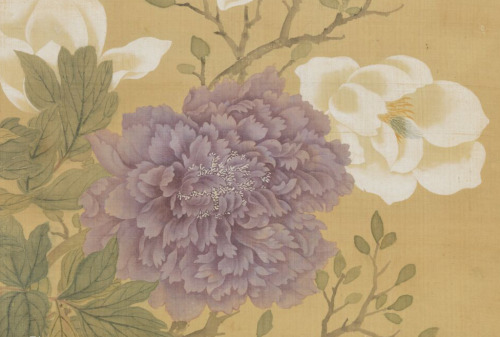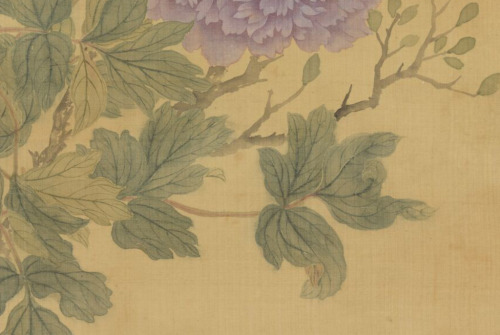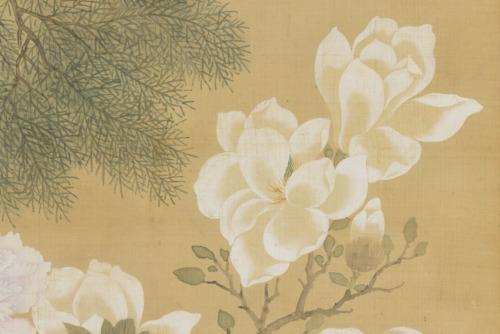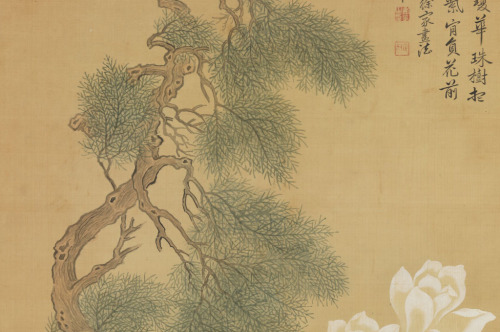Best Video Ever
best video ever
I don’t know what this is all I know is that I can’t stop thinking about it
More Posts from Lia-kotik-blog and Others
I always wondered why the Western Zodiac and the Chinese Zodiac were both called zodiacs if one was associated w astronomy and the other w time in general. Like what defines a zodiac that the word is only used to describe these two things? Looking up the word "zodiac" in the dictionary didnt help bc it only talked about the western one.
Well, I decided to look up the etymology for zodiac and it turns out it comes from the Greek for "circle of little animals." I love humans
看電視劇學中文:【開端】 第三集 【2/2】
這是第二部分,來自:【開端】 第三集 20:00-40:00 // 第一部分在這裡 你們可以在Youtube看:这里 看電視劇學中文Learn Chinese With a TV Series by Leila老師
單詞:(绿色=HSK4; 蓝色=HSK5; 紫色=HSK6)
反复 (-覆) / fǎnfù / repeatedly, over and over
药检 (藥檢) / yàojiǎn / drug test
惯 (慣) / guàn / to spoil
负担 (負擔) / fùdān / burden
从始至终 (從--終) / cóng shǐ zhì zhōng / from the start to the end
唯一/ wéiyī / only
相信 / xiāngxìn / to be convinced sth is true; to believe
交代 / jiāodài / to hand over; to explain; to brief (someone)
达成 (達-) / dáchéng / to accomplish
共识 (-識) / gòngshí / consensus
插曲 / chāqǔ / interlude (music); episode
必然 / bìrán / inevitable
炸药 (-藥) / zhàyào / explosive material or charge
痕迹 (-跡) / hénjì / mark, trace
倒计时 (-計時) / dàojìshí / countdown
装置 (裝置) / zhuāngzhì / device; to install
眼皮底下 / yǎnpídǐxia / right before one's eyes
资料 / zīliào / material, resources
人际关系 (-際關係) / rénjìguānxì / interpersonal relationships
不良 / bùliáng / bad, harmful, unhealthy
嗜好 / shìhào / habit
心理防线 (---線) / xīnlǐfángxiàn / psychological barrier
硬 / yìng / hard, stiff, firm, strong
性质 (-質) / xìngzhì / nature; characteristic
指使 / zhǐshǐ / to prompt, incite
套话术 (-話術) / tàohuàshù / testimony
依然 / yīrán / still; as before
指认 (-認) / zhǐrèn / to identify
采纳 (採納) / cǎinà / to accept
供词 (-詞) / gòngcí / confession; statement
残留物 (殘--) / cánliúwù / leftover, remains
检测 (檢測) / jiǎncè / to examine
薄 / báo / weak, thin, flimsy
没凭没据 (沒憑沒據) / méipíng méijù / no evidence (var. 无凭无据)
下面有句子:
我们会反反复复地过着一整天。We will repeatedly experience the same day.
准备药检。Prepare the drug test.
老张还是太惯着你了。 Mr. Zhang is spoiling you.
你有很重的心理负担。You have a heavy burden (in your heart/mind).
从始至终我没有向你做过自我介绍。This whole time (from start to finish) I never introduced myself to you.
对你来说,相信警察,诚实把交代问题是你的唯一的选择。For you, believing in the police and answering questions honestly is your only choice.
我们终于达成了共识。We finally reached a consensus.
公交车被引爆这才是必然。The bus exploding was inevitable.
你们是不是可以找到一些炸药的痕迹。 Could you find any trace of a bomb/explosive material?
倒计时装置是它的铃声。The countdown system is the ringtone.
在我们眼皮底下演这么一出,从目前掌握的资料来看两个人的人际关系简单。From what we see before us from the resources we've currently have, these two people have simple social histories.
没有不良嗜好。Don't have bad habits.
实际心理防线硬着呢。Really (her) psychological barrier is strong.
那可是完全不同的性质。That could be a completely different characteristic.
她指使你骗出了这个套话术。She incited you to lie on this testimony.
如果你依然不肯如实地告诉我们的话,我们最后只能采纳他指认你是案一的供词。If you still won't agree to honestly tell us (the truth), (then) we have no choice but to accept his identification of you as the case's only confession.
事故现场检测出了爆炸残留物。At the accident site, examine the explosion's remains/residue.
心理防线薄。Weak psychological barrier.
没凭没据什么关我。There is no evidence that it was related to me.
Reviewing tones as an intermediate in Chinese
As a beginner it takes a bit of time to become accustomed to be able to hear the difference in tones, yet alone pronounce them very correctly. By the time you get to intermediate you probably can hear the difference in tones but you may still have trouble pronouncing every single word correctly. However you most likely have a number of words that you have heard so often that you do pronounce correctly. For example 中国 zhong1 guo2, I bet most intermediates pronounce this is the correct tone as it is a word occurring so often that our brains automatically imitate pronunciations. However, when we encounter a new word we may have difficulty getting the tone just right, and then you need to remember it too.
I have two bits of advice that may help with this, that I myself am using to improve my tones over time:
As soon as you learn a new word, repeat at least 10 times in the correct tone.
As I said when speaking Chinese, you are speaking at a speed that you don’t have time to remember which tone the word is, you say it how you remember it. So when you learn a new word you want to try to cement the correct ‘rhythm’ (or tone) of the word in your head. If you remember the incorrect one it may be difficult to undo this. (i remember I pronounced 文化 as wen2 hua2 for the longest time and it was difficult to change this to wen2 hua4 in my head when i discovered i had been saying it all wrong!)
Memorise a few ‘tone pairs’ to remember the ‘rhythm’ when you learn a new word.
Hacking Chinese ( https://www.hackingchinese.com/focusing-on-tone-pairs-to-improve-your-mandarin-pronunciation/ ) has a great article on tone pairs and it’s merits. Recently when i learn a new word I recall the 'model’ word that I have for that particular tone pair, say it a few times to remember the 'rhythm’ of the word, the n say the new word I want to learn in that same rhythm, therefore it will help saying the word in the correct tone.
For example, lets say I learnt the new word 生活 sheng1 huo2, this has the same tone pair as 中国, therefore when i learn 生活 i can easily recall how 中国 is pronounced and imitate the same rythym when i said 生活. I created a table for myself with the tone pairs and so each time I encounter, for example any word that is first tone-second tone (such as 中国), then i can recall the rythym easily in my head.

This table has a list of words that I subconsciously pronounce with the correct tones as a result of hearing them so many times, there are however too many words that i don’t pronounce in the correct tone, hence i use this method to help :P
(ignore my terrible handwriting!)
Please try this out and let me know if you try this out and how it works for you??
Pronunciation Advice for Language Learners: How to Figure Out What You're Doing Wrong
The other day, my friend @calystarose was struggling with the phrase 出去吃 chūqùchī (go out to eat). This is a tongue twister for a lot of native English speakers. Even if we manage to get the individual vowels and consonant sounds correct, we often have a hard time stringing the words together.
I thought about the problem for a bit and then I told her to try saying it with her teeth clenched:
Why would that help?
Clenching your teeth forces you to hold your jaw still, and limits the amount of space your tongue has to move around. You can still make roughly the same sounds you were making before, but the new limitation forces you to make those sounds with smaller muscle movements.
Smaller movements reduce the amount of time and effort it takes to get from one syllable to the next.
.
Talking fast is more about efficiency than speed.
.

ɪᴘᴀ ᴋᴇʏʙᴏᴀʀᴅ ʀᴇꜰᴇʀᴇɴᴄᴇ ᴄʜᴀʀᴛ ᴍsᴋʟᴄ_ɪᴘᴀɢʀᴀᴘʜɪᴄ.ᴘᴅꜰ [sᴏᴜʀᴄᴇ]
When I first started taking French lessons, I had an easy time pronouncing words like "grand" and "robe." But then I ran into the word "livre," and suddenly I was getting tongue tied.
I realized my r was too far back in my throat. Too guttural.
This worked for a word like "grand" where the r is next to a g, a gutteral consonant. A consonant like v, on the other hand, is right at the front of the mouth, on the teeth.
If I wanted to say "livre" smoothly, I'd have to push my r further forward in my mouth, closer to that letter.
.
There's almost always more than one way to make your mouth form a particular vowel or consonant sound.
.
I noticed a while back that I say these letters t & d differently depending on whether I'm trying to speak English or Mandarin.
My t's and d's are little firmer in Mandarin than they are in English — my tongue is held stiffer, and the tip is more pointed when it comes into contact with my hard palate.
The funny thing is, I can't really hear a difference.
But I can feel the difference in my mouth when I shape the letters.
I never made a conscious decision to change how I say these consonants when speaking Mandarin — this is just something I naturally started doing when mimicking the recorded dialogue in my Duolingo audio lessons.
I realized it wasn't about getting the consonants to sound correct.
It was about what came after those consonants. The vowel sounds:
Chinese vowels are really different from English vowels. By changing how I shaped these consonants, I was setting up my mouth for a smoother transition into the next vowel sound.
.
Proper enunciation isn't just about making the right sounds come out of your mouth. It's also about transitioning from one sound to the next as fluidly as possible.

this post is meant to be a directory of every resource I come across for Mandarin, often referred to as Chinese or Standard Chinese. It will be a continuous work in progress so thank you for your patience! if you have any issues or things to add, please reply to this post!
info
history of the chinese writing system
“in mandarin chinese, we don’t say…”
language learning profile
playlist of samples
the languages gulper
wikipedia
Keep reading

Moonlight At Suzhou ,China - Elizabeth Keith , 1924.
Scottish, 1887-1956
Woodblock , 17 -¼ x 13 -½ in.
A man in Inner Mongolia, China, comparing the sizes of goats at different ages.
English added by me :)






my favorite poetry books (free PDF or epub)
the complete maya angelou
don't call us dead by danez smith
all the flowers kneeling by paul tran
time is a mother by ocean vuong
madness by sam sax
mayakovsky's revolver by matthew dickman
soft science by franny choi
thief in the interior by phillip b williams
ariel by sylvia plath
calling a wolf a wolf by kaveh akbar
together and by ourselves by alex dimitrov
not here by hieu minh nguyen
brute by emily skaja
post colonial love poem by natalie diaz
unaccompanied by javier zamora
prelude to bruise by saeed jones
howl & other poems by allen ginsberg
the big book of exit strategies by jamaal may
look by solmaz sharif
the crown ain't worth much by hanif abdurraqib
eyes bottle dark with a mouthful of flowers by jake skeets
finna by nate marshall
autopsy by donte collins
a place called no homeland by kai cheng thom
lunch poems by frank o'hara
lessons on expulsion by erika l sanchez
the new testament by jericho brown
said the manic to the muse by jeanann verlee
space struck by paige lewis
safe houses i have known by steve healey
the wound is a world by billy-ray belcourt
nature poem by tommy pico
owed by josua bennett
felon by reginald dwayne betts
come on all you ghosts by matthew zapruder
bluets by maggie nelson
life of the poetry by olivia gatwood
perennial by kelly forsythe
contradictions in the design by matthew olzmann
the big smoke by adrian matejka
peluda by melissa lozada-oliva
american sonnets for my past & future assassins by terrance hayes
king me by roger reeves
in a dream you saw a way to survive by clementine von radics









chinese artist 恽寿平 yun shouping (1633-1690)
-
 catbirthdays liked this · 1 month ago
catbirthdays liked this · 1 month ago -
 ciphermachines liked this · 1 month ago
ciphermachines liked this · 1 month ago -
 anything-viva liked this · 1 month ago
anything-viva liked this · 1 month ago -
 pigeon-feet liked this · 1 month ago
pigeon-feet liked this · 1 month ago -
 solidstatehero liked this · 1 month ago
solidstatehero liked this · 1 month ago -
 somberine liked this · 1 month ago
somberine liked this · 1 month ago -
 sumetal liked this · 1 month ago
sumetal liked this · 1 month ago -
 junkirat reblogged this · 1 month ago
junkirat reblogged this · 1 month ago -
 jikonikodouga reblogged this · 1 month ago
jikonikodouga reblogged this · 1 month ago -
 capybara-platypus reblogged this · 1 month ago
capybara-platypus reblogged this · 1 month ago -
 capybara-platypus liked this · 1 month ago
capybara-platypus liked this · 1 month ago -
 ashe-the-acorn reblogged this · 1 month ago
ashe-the-acorn reblogged this · 1 month ago -
 ashe-the-acorn reblogged this · 1 month ago
ashe-the-acorn reblogged this · 1 month ago -
 ashe-the-acorn reblogged this · 1 month ago
ashe-the-acorn reblogged this · 1 month ago -
 ashe-the-acorn liked this · 1 month ago
ashe-the-acorn liked this · 1 month ago -
 t4toon liked this · 1 month ago
t4toon liked this · 1 month ago -
 samstarium liked this · 1 month ago
samstarium liked this · 1 month ago -
 makuta-tobi reblogged this · 1 month ago
makuta-tobi reblogged this · 1 month ago -
 kaleuh liked this · 1 month ago
kaleuh liked this · 1 month ago -
 xgutter-glitterx reblogged this · 1 month ago
xgutter-glitterx reblogged this · 1 month ago -
 dogleather liked this · 1 month ago
dogleather liked this · 1 month ago -
 darrellenjoyer reblogged this · 1 month ago
darrellenjoyer reblogged this · 1 month ago -
 demoncuffs liked this · 1 month ago
demoncuffs liked this · 1 month ago -
 ghoulchurch reblogged this · 1 month ago
ghoulchurch reblogged this · 1 month ago -
 pxrsurface reblogged this · 1 month ago
pxrsurface reblogged this · 1 month ago -
 woodenduck reblogged this · 1 month ago
woodenduck reblogged this · 1 month ago -
 tr4shbo1 liked this · 1 month ago
tr4shbo1 liked this · 1 month ago -
 dnainers reblogged this · 1 month ago
dnainers reblogged this · 1 month ago -
 strawberrydakry reblogged this · 1 month ago
strawberrydakry reblogged this · 1 month ago -
 clownfish3r liked this · 1 month ago
clownfish3r liked this · 1 month ago -
 fefesan liked this · 1 month ago
fefesan liked this · 1 month ago -
 ryliceracc reblogged this · 1 month ago
ryliceracc reblogged this · 1 month ago -
 greenduck54 liked this · 1 month ago
greenduck54 liked this · 1 month ago -
 kitzenvoncatzen reblogged this · 1 month ago
kitzenvoncatzen reblogged this · 1 month ago -
 1nvalidsyntax reblogged this · 1 month ago
1nvalidsyntax reblogged this · 1 month ago -
 thattiredcat liked this · 1 month ago
thattiredcat liked this · 1 month ago -
 wolfinweb reblogged this · 1 month ago
wolfinweb reblogged this · 1 month ago -
 wolfinweb liked this · 1 month ago
wolfinweb liked this · 1 month ago -
 mjs-whatsapp-clone liked this · 1 month ago
mjs-whatsapp-clone liked this · 1 month ago -
 loversindarkness liked this · 1 month ago
loversindarkness liked this · 1 month ago -
 saturdaynight-wrist liked this · 1 month ago
saturdaynight-wrist liked this · 1 month ago -
 kde-plasma-official reblogged this · 1 month ago
kde-plasma-official reblogged this · 1 month ago -
 buglicorice reblogged this · 1 month ago
buglicorice reblogged this · 1 month ago -
 sircoolguy liked this · 1 month ago
sircoolguy liked this · 1 month ago -
 waza8163 reblogged this · 1 month ago
waza8163 reblogged this · 1 month ago -
 waza8163 liked this · 1 month ago
waza8163 liked this · 1 month ago -
 ivylag reblogged this · 1 month ago
ivylag reblogged this · 1 month ago -
 ivylag liked this · 1 month ago
ivylag liked this · 1 month ago -
 cannibalistic-cucumbette reblogged this · 1 month ago
cannibalistic-cucumbette reblogged this · 1 month ago